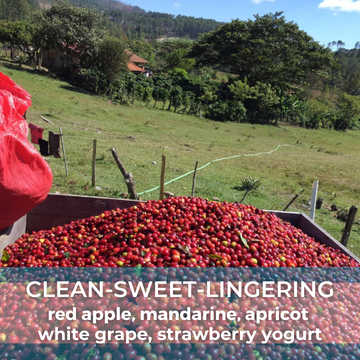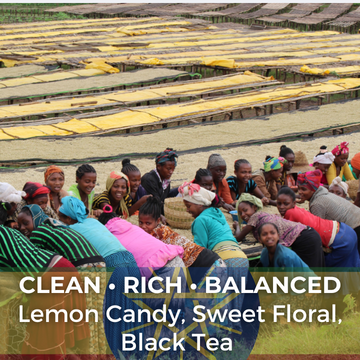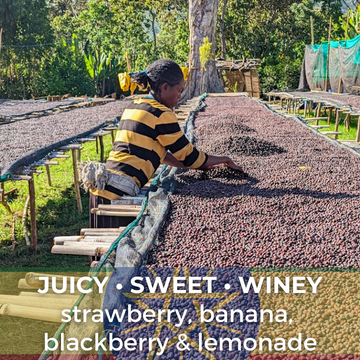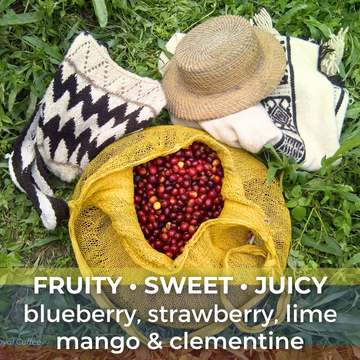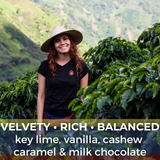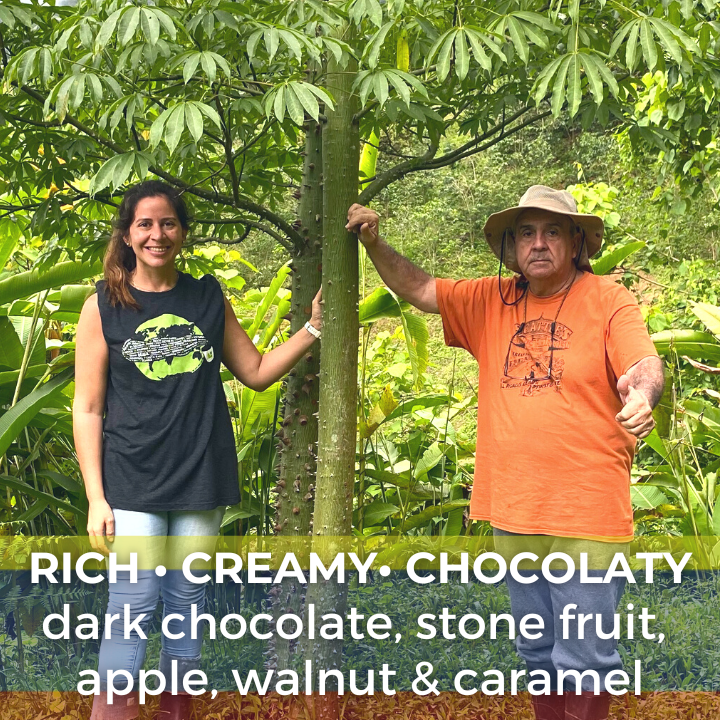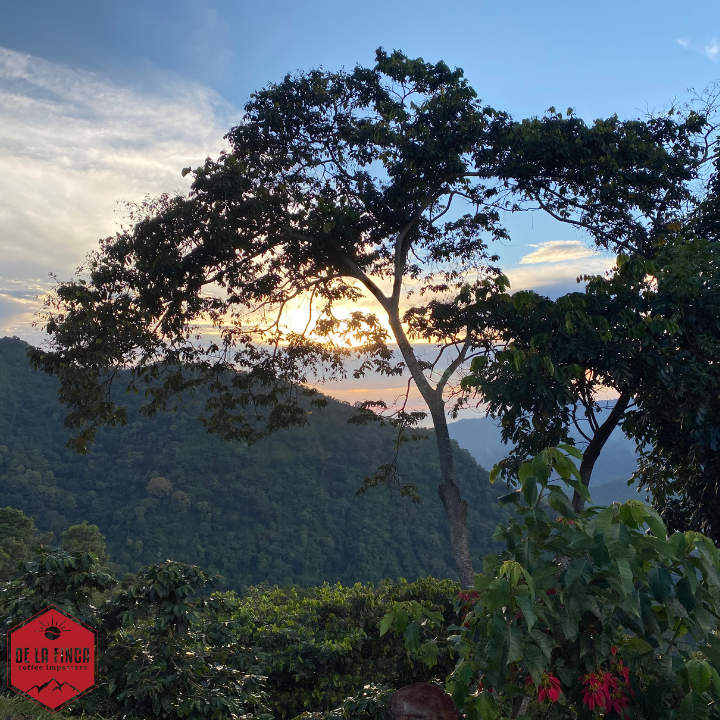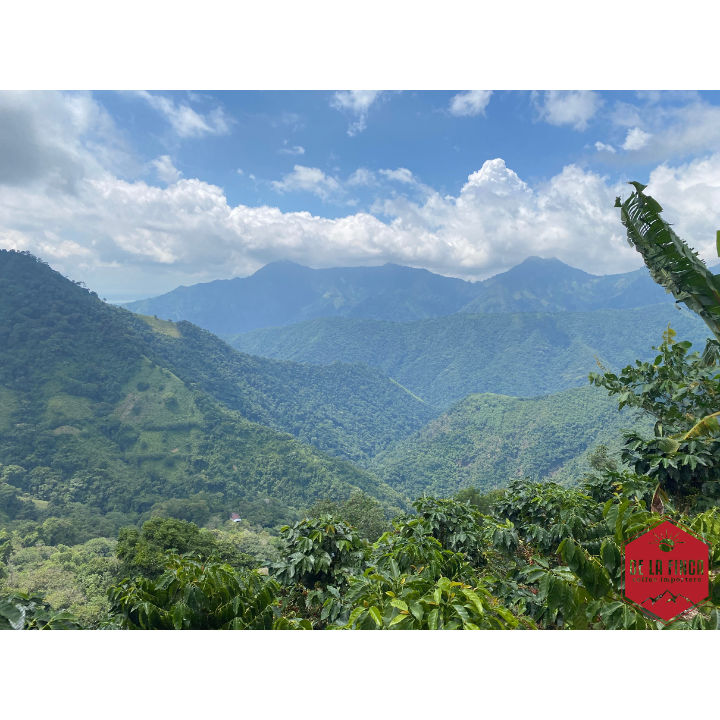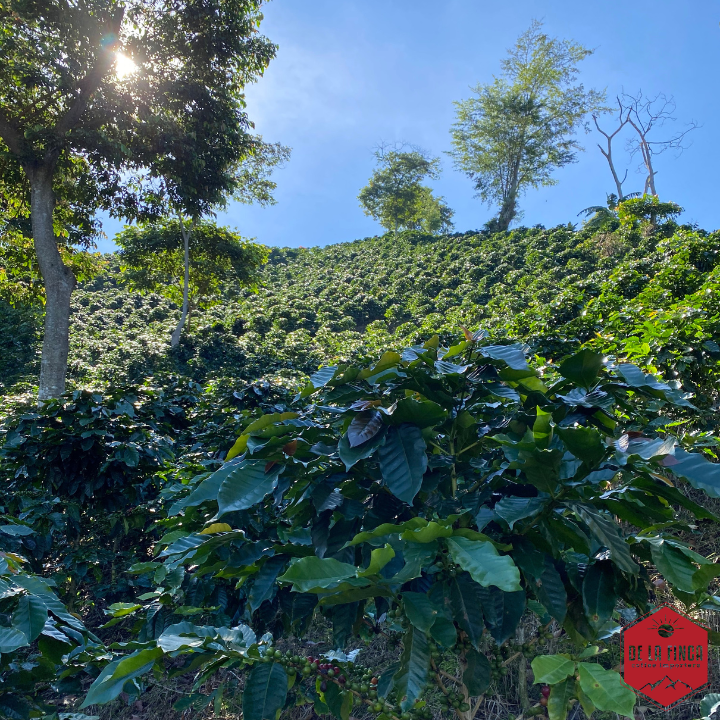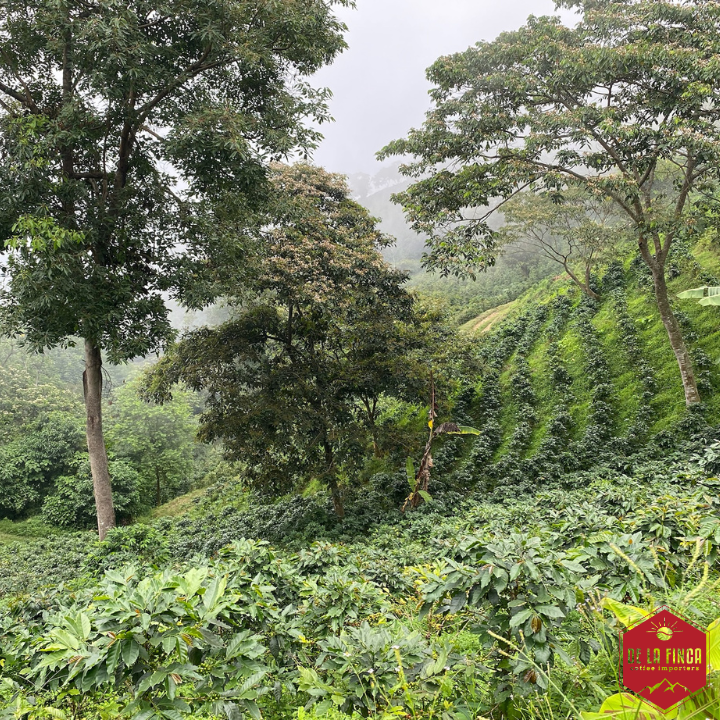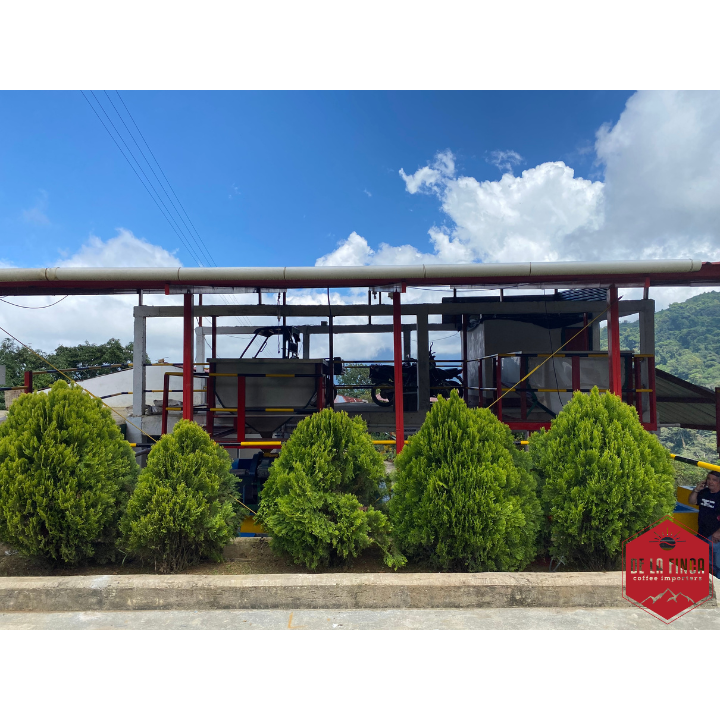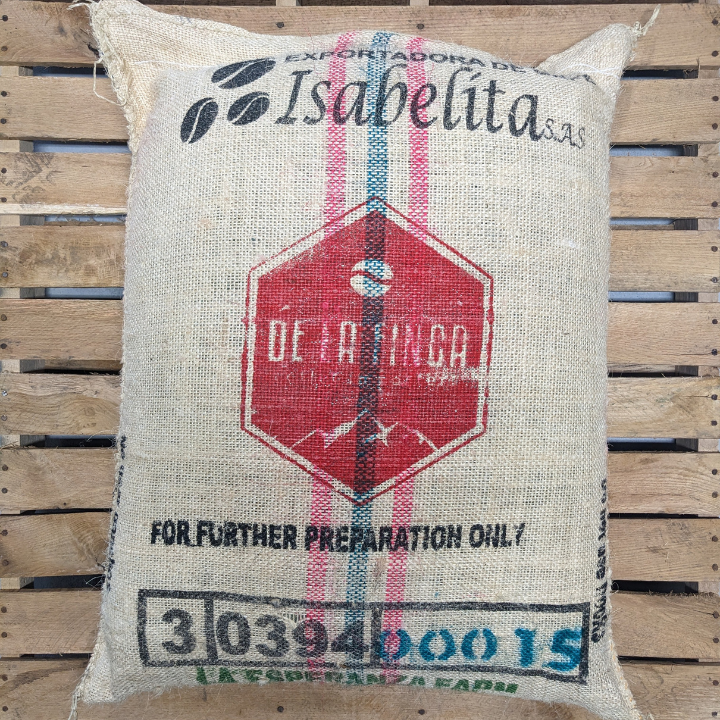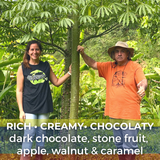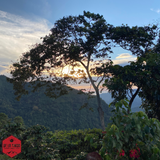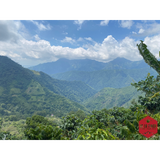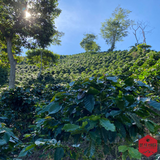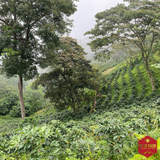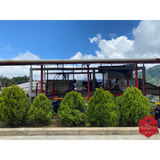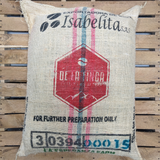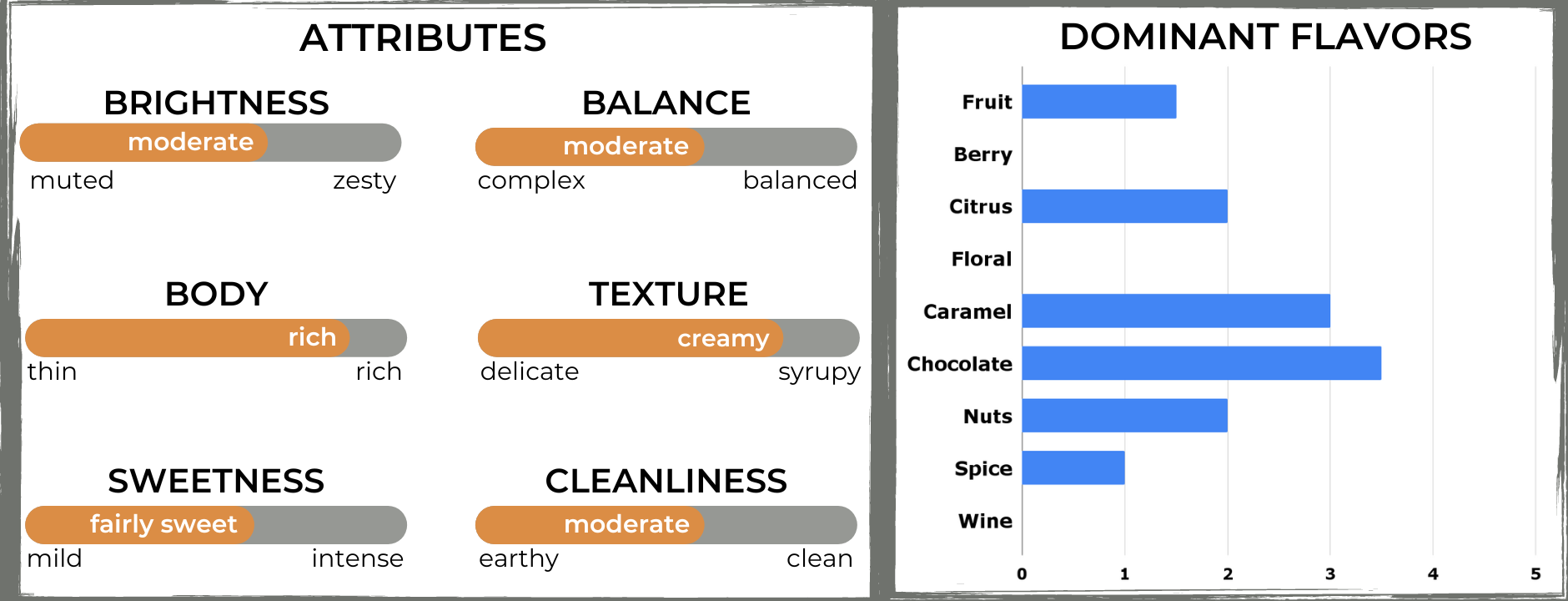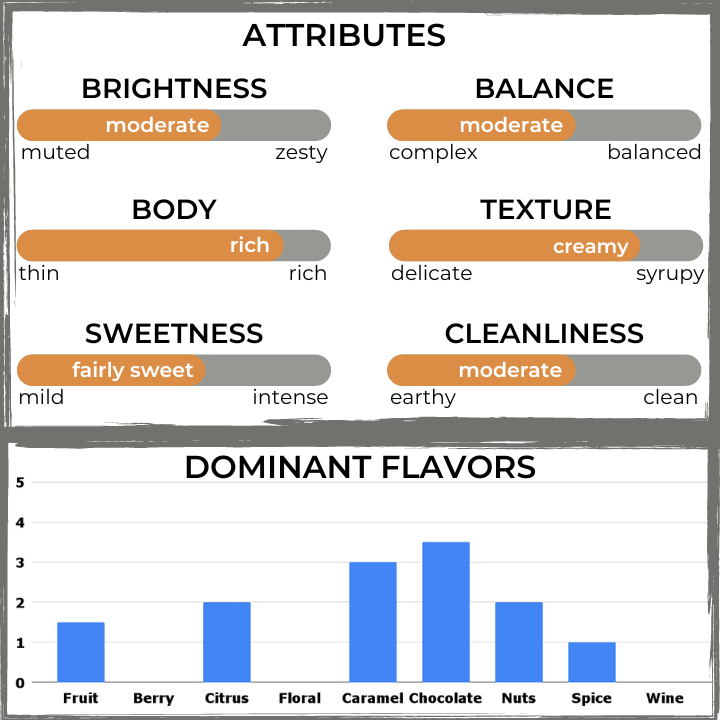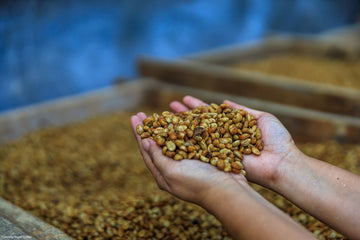Colombia Sierra Nevada Finca La Esperanza
We’re excited to keep expanding our lineup from De La Finca Coffee importers and this coffee from the Sierra Nevada de Santa Marta mountain range in Colombia is no exception. This selection is Castillo variety only grown by father and daughter duo Dario & Iliana Delgado on their farm La Esperanza. Dario has been a long-time coffee producer since 1998 and when Iliana joined years later, they started focusing their efforts more on specialty coffee production. In 2015, they began a new adventure growing Castillo only variety on two of their farms and this is the fourth harvest of consistently reliable crop/product with the new specialty coffee protocols in place.
Castillo is now the most common coffee variety grown in Colombia, replacing the country’s Typica and Bourbon crops. It is a hybrid variety of Caturra with Timor that was carefully designed to be less resistant to leaf rust, unlike its counterpart Caturra. It’s suitable to grow in high density climates because it’s a “dwarfed” tree (meaning it’s compact) and it yields an abundant amount of coffee cherries, so it’s a popular choice for producers. How does this translate in the cupping characteristics? On one hand, it does have the potential to score highly in cupping evaluations; on the other hand, some in the specialty coffee realm think because it shares a genetic heritage with Robusta-Arabica beans that it is lower quality.
We beg to differ; we think you can have the best of both worlds and this coffee proves it. The cup is what you’ve come to expect and love from Colombian coffee: It’s got rich body with a creamy to velvety texture with big chocolate notes like dark chocolate. It’s not overly sweet with a caramel note but has a nice nuttiness like walnut. The cup is subtly bright and moderately balanced with additional flavors of apple (maybe red, gala, or fuji), stone fruit like nectarine or cherry, and meyer lemon.
Reminder! This coffee is raw, you must roast it before brewing
Arrival Date: June, 2025 Harvest year: 2025, Packed in GrainPro
Acidity & Brightness: Subtly bright and slightly sweet
Balance & Finish: Moderately balanced and moderately clean finish
Body & Texture: Rich bodied with a creamy-to-velvety texture
Flavors: Dark chocolate, stone fruit, apple, walnut, and caramel
Grade: Excelso, 14/16 screen size, Grown at 1650 masl, SHB
Processing: Initially fermented for 24 hours, then depulped and fermented again for 24 hours. Afterwards, wet parchment is washed in an eco washer then dried slowly in mechanical silos for 50 hours
Grower: Dario & Iliana Delgado | Finca La Esperanza
Region: Sierra Nevada De Santa Marta region
Varieties: Castillo
Recommended Roast Range: City+ to Vienna (Light-Medium to Dark)
We like this coffee best between City+ to Full City (light-medium to medium) as most roasters will have the best results at Full City (full medium) or between 1st and 2nd crack. Go slightly lighter, to around the tail end of 1st crack, to bring out some bright citrus notes like meyer lemon. Roasts taken to the darker side of medium will find the milk chocolate notes turn a bit more cocoa heavy more like dark chocolate and you’ll squeeze a bit more texture and body out of the cup. Roasts taken a little further into second crack will turn the dark chocolate into almost baker’s chocolate and give up fruit notes for more emphasis on chocolate and nuts.
De La Finca Coffee - "Dario Delgado has been a coffee producer since 1998, focusing much of his production on organic farming. After several years in the coffee growing industry, Dario and his daughter, Iliana, started working together towards focusing on specialty coffee production.
In 2015, Dario decided to start a new company with two farms growing Castillo variety but now following a tailored made specialty production process. In 2022, they celebrated their fourth harvest of these coffees following the new specialty protocols which also allowed them to test the consistency of these coffees in the process.
This year, the total production in both farms came close to 5 containers, 1375 bags. For the first time, Dario is allowing Iliana to fully manage both the farm processing and the commercial offerings abroad. It is a goal for Iliana and the family to accomplish direct trade partnerships for all of their coffees — being owners of the complete supply chain from the farm to the port.
Processing:
Dry cherry stabilization for 12 hours
Fermentation of de-pulped cherries for 24 hours
Mechanical drying in silo at 40 degrees celsius for 36 hours (pre-dry 16 hours and full drying 12 hours)
Milling and sorting starting in November
The Delgado's farms are located in Sierra Nevada de Santa Marta. La Esperanza Farm is a small plot of land reaching about 1650m. Coffee trees are planted under native tree shade.
Due to climate conditions, the trees get natural cloud coverage everyday. These weather conditions allow for coffee cherries to ripen slowly and consistently until the harvest season which is concentrated once a year between October and February.
Coffees are harvested at the optimal ripening point manually by a group of pickers that are hired every year. Almost 70% of the pickers return each year for the harvest. Once the cherries are picked, they are taken to the beneficio (mill) where they are first sorted with a mechanical washer, separating immature and dried cherries from perfectly ripened cherries.
After ripe cherries are clean, they are transported to a stainless steel silo where they initially ferment for 24 hours. After 24 hours, the coffees are mechanically de-pulped and then fermented again for another 24 hours. The wet parchment is then washed in an eco washer that uses centrifugal force to remove the last remainders of pulp from every seed.
Once fully washed, the coffee is transported to mechanical silos where they are slowly dried for almost 50 hours. Afterwards, the dry coffee (in parchment) is stored in 40kg jute bags and kept in warehouses in the farm for about 3 weeks before they are transported down to the dry mill.
Once in the dry mill, coffees get an initial QC evaluation and assigned a storage location depending on how quickly these must be processed for export. All of the coffees are milled and sorted carefully to maintain physical and sensory standards. It also helps that the mill is strategically located only 15 mins away from the Santa Marta Maritime Port. This allows for them to quickly respond to direct trade customers and move milled coffee directly and safely to port.”
